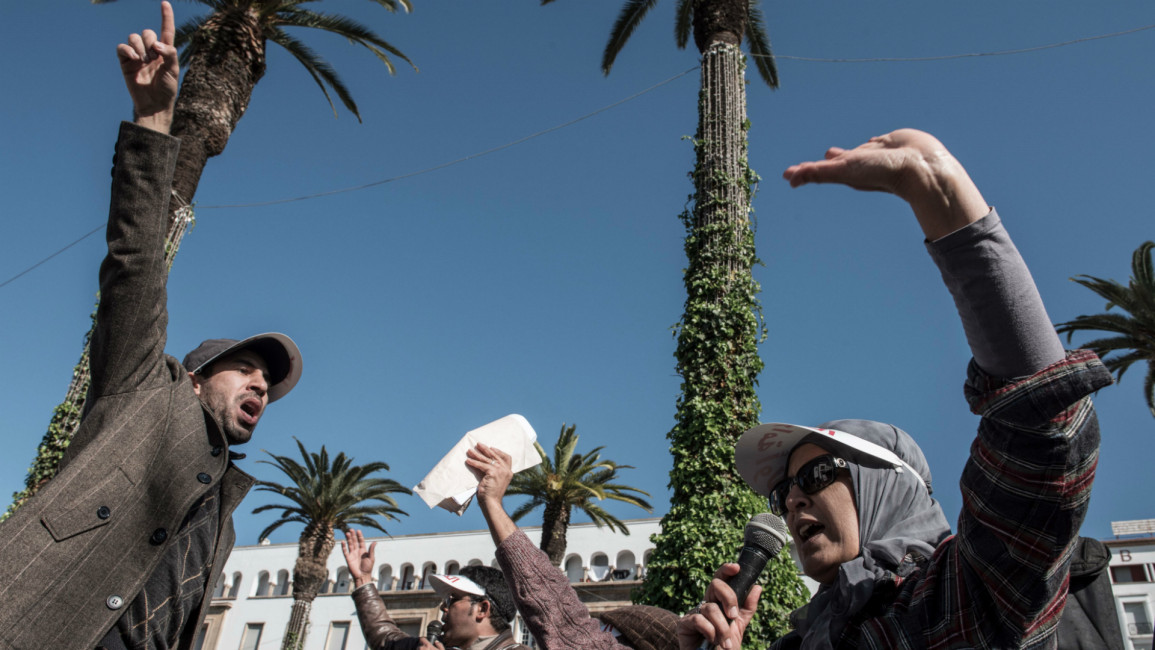Moroccan families of disappeared during Hassan II's 'Years of Lead' call for justice
Moroccan families of political dissidents who were forcibly disappeared during "the years of lead" continue to call for justice, as the Moroccan state remains silent about this era.
On Sunday, dozens of activists gathered at the United Nations Place in Casablanca and held pictures of their relatives who disappeared during the rule of the late King Hassan II (1959-1999).
Protesters called on the state to hand over their relatives' remains and share "the whole political truth behind their disappearance."
"The majority of the families of the victims do not have any information about the place or the circumstances of the death of their relatives," Abd Al-Karm Al-Manuzi, head of the Association for the Rehabilitation of Victims of Violence and Abuse, told The New Arab.
Under Hassan II's reign, dissidents were arrested and imprisoned namely at the secret prison of Tazmamart, in which at least 35 activists passed away because of torture or were executed.
Pressure from international human rights groups and foreign governments led to the closure of Tazmamart in 1991 and the release of the last remaining detainees.
Through literature and memoirs, the Tazmamart survivors have recounted spine-chilling stories of the underground Orwellian world where horrendous methods of torture were used against the state’s opponents.
After Hassan II's death, his son Mohammed VI came to power and announced the end of the so-called "years of lead" by inaugurating the Arbitration Commission and the Equity and Reconciliation Commission (ERC) to ease the investigation of the Tazmamart crimes and ensure justice.
Two decades later, perpetrators have yet to be held accountable.
"Most families do not want financial compensation as much as they want truth, respect and acknowledgement of the tragedy of their relatives," added Al-Manuzi.
The Moroccan state has yet to officially apologise for the Tazmamart massacre and for abuses occurring in other prison camps, where dozens of activists were reportedly killed for opposing the regime.


![Minnesota Tim Walz is working to court Muslim voters. [Getty]](/sites/default/files/styles/image_684x385/public/2169747529.jpeg?h=a5f2f23a&itok=b63Wif2V)




![Debris near Rafic Hariri International Airport [Getty]](/sites/default/files/styles/image_330x185/public/2176162423.jpeg?h=a5f2f23a&itok=MCSK9mkM)
![An Israeli air strike on Jabalia killed teenage journalist Hassan Hamad [Screengrab/X]](/sites/default/files/styles/image_212x120/public/2024-10/hassan%20hamad1.jpg?h=c12e0b96&itok=KstD_5xk)
